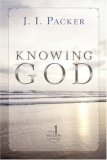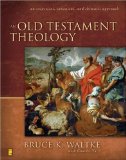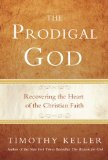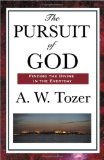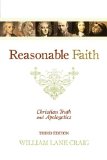I just received an e-mail from a friend of mine informing me that Todd MacDonald, a friend from seminary, passed away last week after battling cancer. You can read his obituary here and see any other updates on his website. This is obviously incredibly sad news for those of us who knew Todd. For me personally it hit me because I had planned on e-mailing Todd this morning to see how he was doing. Now I know.
I had highlighted Todd’s album, Pilgrims Here, a couple years back, and in that post I briefly mentioned the impact Todd had on my life. I wanted to take a second and honor Todd again.
I e-mailed Todd way back in March of 2009. I had been trying to find a way to contact him to tell him about how a random theological conversation at Brian’s (my coblogger) wedding had helped change my life. While I was searching for contact info (on the internet) I discovered that he was battling cancer. I’m grateful for the chance to tell him this before he passed away, and for the random e-mails we shared over the past 3 years.
This is a portion of the e-mail I sent him 3+ years ago:
Do you remember being at Brian Marchionni’s wedding a few years back (almost 5, now)? You and I discussed theology for most of the reception, which was a pretty dorky thing to do. But, you spent a lot of time convincing me of your reading of Romans 7, specifically that it doesn’t deal with a regenerate man but an unregenerate man. Seems fairly innocuous, but it ended up being an important time of my life.
One thing that no one knew about me in seminary is that I struggled greatly with depression. I felt hopeless in the face of it, and felt as if I could never overcome my sin that was largely responsible for my depression. Basically, in my mind, in the battle between my flesh and the Spirit, I felt as if the flesh would always win. But after our conversation, I went back and read the NT again to see what I thought about what you said. It opened up a new world for me, one that actually had hope and I began to believe that sin actually was defeatable.
I’m not saying the change was overnight, but I can honestly say that our conversation that night was a major turning point for me in my battle with sin and depression. It’s weird, seminary students have theological conversations on a daily basis, but only a small percentage actually make a difference. This is one that has had a profound impact on me, and I’m grateful to you for your insight. It truly changed my life.
I’m actually teaching on this tonight. I’ve been telling people for years now that our conversation that night at Brian’s wedding changed my life, but about a month ago I realized that you probably had no idea; I had decided I needed to write you and tell you. Soon after that, I found out you’re sick, and was heartbroken. So, I’m writing to let you know how much I appreciate you and how thankful I am that God crossed our paths at just the right time. Now that I’m on the “other side” of my depression battle, I can clearly see that you were an instrument in the hands of God, even without knowing it. God truly is amazing!
Now that Todd has temporarily lost his battle with cancer, I reflect on that conversation (now almost 8 years ago) and can’t believe how far the Lord has brought me. I don’t want to overstate things in the wake of his death. Todd and I were not best friends. He wouldn’t have put me on his short list of closest buddies. That conversation was not the single most important event in my life.
But it would make the Top 10 major events in my adult life, truth be told. It was a significant turning point, one, as I said, I frequently pointed to in my teachings about overcoming sin (even before I found out Todd was sick). I know Todd was grateful that I let him know about this. He even joked that he was probably fueled by pride in trying to convince me of his position (he didn’t even remember the conversation, as we probably had so many). Whether or not that’s true, I’m grateful we talked.
So now we await the glorious future of Todd MacDonald. I’m sad he’s passed, happy he’s not suffering now and excited that there is the hope of the resurrection to come. Todd MacDonald will one day return, not in a cancer-ridden body, but one transformed into a glorious body like that of our Savior’s (Phil 3:21). While I have no doubt his suffering was immense, and the suffering his family now endures is unquestionably heavy, I also know that those “present sufferings are not worth comparing with the glory that will be revealed in us” (Rom 8:18). Amen and amen. Come, Lord Jesus.
 Whenever I hear about a book that deals with resurrection in some form, I get excited. As I’ve been teaching the Bible in a local church context for a few years, I’ve encountered few people with much knowledge regarding the Bible’s teaching on resurrection. Christians believe that Jesus rose from the dead, but that’s about it. When I ask what the implications are of Christ’s resurrection, I’m answered with confused looks and blank stares. Every now and then someone will refer to Romans 6:4, “…raised to walk in newness of life,” in a discussion. Almost no one has mentioned the resurrection of the body from 1 Corinthians 15. Ephesians 1:18-19? Silence. You get the idea.
Whenever I hear about a book that deals with resurrection in some form, I get excited. As I’ve been teaching the Bible in a local church context for a few years, I’ve encountered few people with much knowledge regarding the Bible’s teaching on resurrection. Christians believe that Jesus rose from the dead, but that’s about it. When I ask what the implications are of Christ’s resurrection, I’m answered with confused looks and blank stares. Every now and then someone will refer to Romans 6:4, “…raised to walk in newness of life,” in a discussion. Almost no one has mentioned the resurrection of the body from 1 Corinthians 15. Ephesians 1:18-19? Silence. You get the idea.

